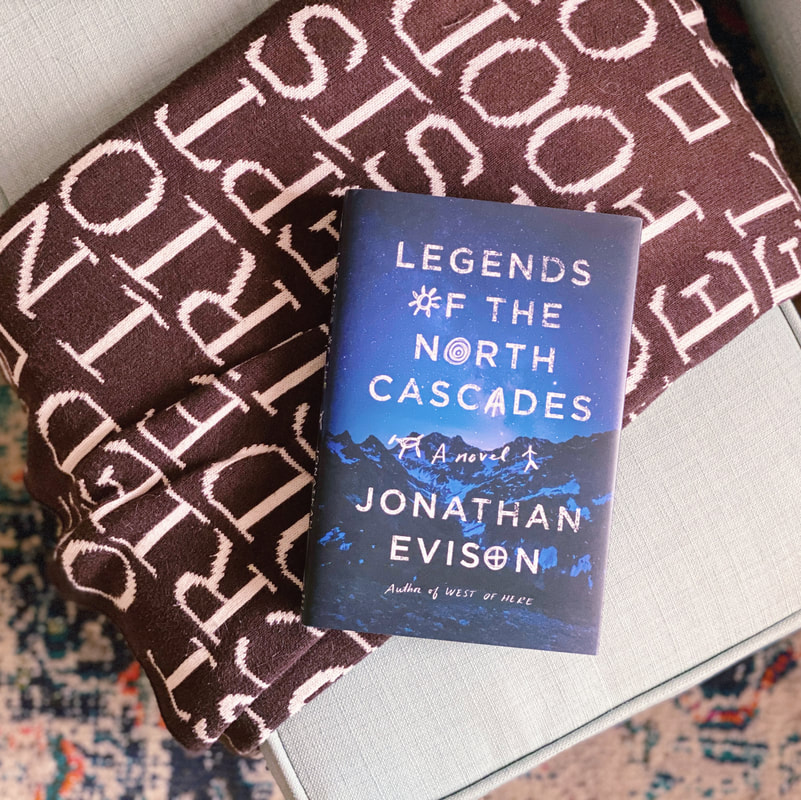|
3.5 stars
This was…complex. I've slept on this review, and at the end of the day I think it boils down to this: this is a memorable, engaging, and haunting story. But ultimately not for me. Writing: ★★★★ Story structure: ★★★ Plot/Pacing: ★★★ Characters: ★★★ Dave Cartwright is done. Unwilling to look his PTSD from Iraq in the eye, when his wife dies in a car accident after their last fight it's the last straw for Dave--he throws in the towel. With society. He becomes convinced that the only way to take charge of his life--and the life of his seven-year-old daughter, Bella--is that he needs to move them into the North Cascades, a mountain range in rural Washington. So he does. He leaves his house, his life, his money, and his support network and takes Bella. So the two Cartwrights move into the wilderness. So far, so good. Bella thinks its an adventure, and Dave can finally breathe away from all of the gunk that he didn't want to face in town. But then things start to turn, and Bella's life changes--she starts seeing these visions. Not flashbacks, per se, but more glimpses into the life of an ancient Native American woman who lived in these mountains at the end of the last Ice Age. With those two dual narratives--Bella and Dave's in the present, Sitka and her son's in the far ancient past--this novel unfolds with atmospheric undertones and an ominous edge. Will the North Cascades let either duo survive? If this feels very much like the concept of Into the Wild to you, you're not alone. I felt very similar vibes and reactions to this decision while Dave was putting it into place. (Into the Wild frustrated me to no end.) Does Dave think this will work? How does he think this is good for his daughter, who is still learning things in school and is grieving herself? How long does he think he can keep this up? Why are we spending so much time with this Native American family? Why is Bella seeing their lives play out like a disassociated movie in her head? Those were my questions. Maybe it was just me, as a 26-year-old female with no overly outdoor bone in her body. Maybe it was also my complete lack of experience with PTSD as it relates to our current veterans returning from a war with more grey areas than justice. But. At the end of the day, I just didn't understand Dave or his motivations. And when I couldn't get behind his decisions, I found myself upset with the story. I was worried for Bella, for their survival, for their sanity. I was also extremely perturbed by the lack of action taken by the town and Dave's surrounding family. I don't know, folks. I found myself more concerned with the logistics and logic of this book to the point that I couldn't enjoy the story. My family calls me the extreme "over -worrier" though, so take my ??? with a grain of salt. Another element of the story that confused me was the interjections of Sitka, the Native American woman, surviving with her young family in the same wilderness. I completely understood the parallels taking place--one family versus another in the same place, with the same desperate wills to survive. But to have Sitka's story displayed to Bella, and not to Dave, felt strange to me. How is a young child supposed to make sense of that story, and what was she supposed to do with this information? I don't know. As you can see, I have a lot of feelings and strong emotions around this story. Because of that, I DO strongly encourage others to pick up Legends of the North Cascades if the story seems of interest to you. The writing is stellar and the plot is compelling, and it clearly provokes a response--which is the best type of fiction. Thank you to Algonquin for my copy in exchange for an honest review.
0 Comments
|
Amy Imogene ReadsJust someone looking for her own door into Wonderland. Categories
All
Archives
July 2024
|


 RSS Feed
RSS Feed
